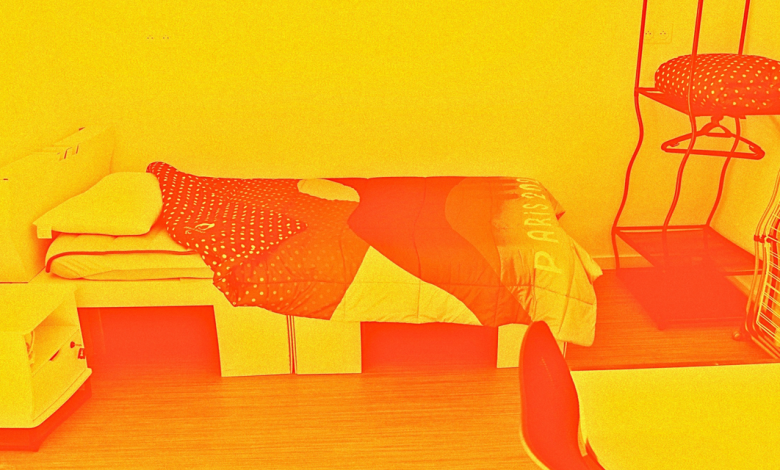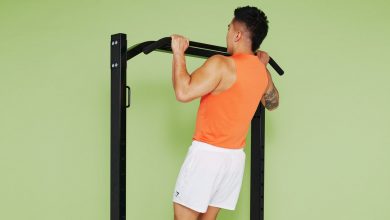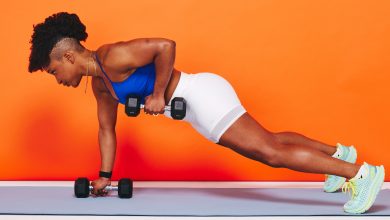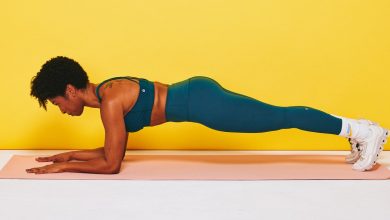No AC in the Olympic Village? Team USA Says It’s a ‘Critical Component’ of Performance

Things seem to be heating up in advance of the 2024 Olympics in July. Organizers of the Paris Games have decided against installing air conditioning in the Olympic Village as a way to make the event more environmentally friendly, according to the Associated Press, but not everyone is on board—including the US Olympic and Paralympic Committee (USOPC).
In fact, the USOPC is planning to provide Team USA with AC units in France, against organizers’ wishes. During a June 21 press briefing, Sarah Hirshland, the CEO of the USOPC, said while they have “great respect” for the Paris Organizing Committee’s focus on sustainability, team members weren’t exactly enthusiastic about the prospect of staying in AC-less rooms.
“[I]n our conversations with athletes, this was a very high priority and something that the athletes felt was a critical component in their performance capability, and the predictability and consistency of what they’re accustomed to,” Hirshland said. “And so, yes, we will have air conditioners.”
To be clear, Paris organizers planned to take some measures to make things a little less sweltering—specifically, installing a system of cooling pipes under the floors, according to the AP. But Hirshland’s comments hint at concerns that the system just wouldn’t cut it. And for good reason, too: In 2023, Europe experienced a record number of “extreme heat stress days,” according to the United Nations, and 2024 could follow a similar trajectory, The Guardian reports.
Anyone who’s ever struggled to fall or stay asleep in a hot room knows all too well the frustration of tossing and turning in a tangle of sweaty sheets until the small hours of the morning. But for Olympians, whose futures (and in some cases, livelihoods) depend on feeling their best physically, a poor night’s sleep might be more than just annoying—it can have legit repercussions.
Temperature can be “one of the most important factors that can affect human sleep,” as a 2012 review published in Journal of Physiological Anthropology concluded—meaning, out of all the things that can make or break a night’s rest, your room’s climate is right up there. Anything between 60 and 67 degrees Fahrenheit is considered optimal. When we start to inch above that, that’s when things can go south. As one 2016 Danish study found, people perceived their sleep quality to be worse after a week of sleeping at a temperature higher than what they preferred.
And a bad night’s sleep isn’t exactly a recipe for athletic success. You might notice that your reaction times lengthen, you tire more easily, and you have more trouble making decisions. All in all, bad sleep has been linked to decreases in speed, strength, power, and accuracy. How much of a drop are we talking? According to a 2022 review in Sports Medicine, an athlete’s performance declines about 0.4% for every hour spent awake after a night of sleep loss. Might not sound like a lot, but let’s remember—on the world’s biggest sport stage, the difference between a gold medal and missing the podium is often measured in split seconds or centimeters. What’s more, poor sleep can also put you at greater risk of concussions and other injuries, plus impair recovery, according to a 2020 study.
So yep, the research supports the USOPC’s decision to bring air conditioners to Paris. A comfortable temperature can help our athletes perform their best, compete safely, and recover well enough to do it all again the next day. All this may be why several other countries also intend to use AC in France, including Britain, Canada, Italy, and Germany, as the Washington Post reported earlier this month. So while exercise itself can be an excellent natural sleep aid, our athletes deserve a little help to make the most of it.
SELF is your one-click source for all things Summer Olympics. Read our latest coverage of the Paris Games here.
Related:



